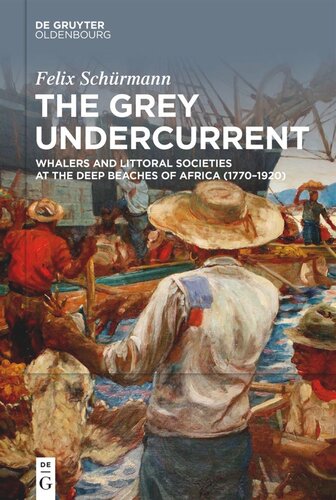

Most ebook files are in PDF format, so you can easily read them using various software such as Foxit Reader or directly on the Google Chrome browser.
Some ebook files are released by publishers in other formats such as .awz, .mobi, .epub, .fb2, etc. You may need to install specific software to read these formats on mobile/PC, such as Calibre.
Please read the tutorial at this link: https://ebookbell.com/faq
We offer FREE conversion to the popular formats you request; however, this may take some time. Therefore, right after payment, please email us, and we will try to provide the service as quickly as possible.
For some exceptional file formats or broken links (if any), please refrain from opening any disputes. Instead, email us first, and we will try to assist within a maximum of 6 hours.
EbookBell Team

4.3
38 reviewsBy extending their voyages to all oceans from the 1760s onward, whaling vessels from North America and Europe spanned a novel net of hunting grounds, maritime routes, supply posts, and transport chains across the globe. For obtaining provisions, cutting firewood, recruiting additional men, and transshipping whale products, these highly mobile hunters regularly frequented coastal places and islands along their routes, which were largely determined by the migratory movements of their prey. American-style pelagic whaling thus constituted a significant, though often overlooked factor in connecting people and places between distant world regions during the long nineteenth century.
Focusing on Africa, this book investigates side-effects resulting from stopovers by whalers for littoral societies on the economic, social, political, and cultural level. For this purpose it draws on eight local case studies, four from Africa’s west coast and four from its east coast. In the overall picture, the book shows a broad range of effects and side-effects of different forms and strengths, which it figures as a "grey undercurrent" of global history.